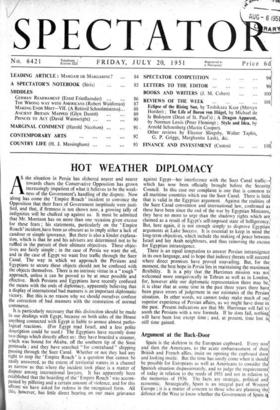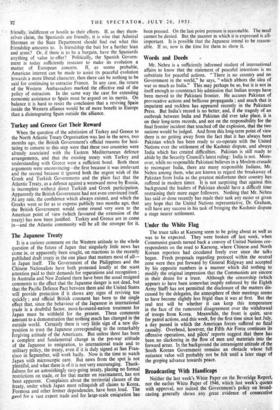Argument at the Back-Door
Spain is the skeleton in the European cupboard. Every now and then the Americans, to the acute embarrassment of theit, British and French allies, insist on opening the cupboard door and looking inside. But the time has surely come when it should be possible for Europeans as well as Americans to consider the Spanish situation dispassionately, and to judge the requirements of today in relation to the needs of 1951 and not in relation to, the memories of 1936. The facts are strategic, political and; economic. Strategically, Spain is an integral part of Westerni Europe ; it is a matter of concern to those who are planning thej defence of the West to know whether the Government of Spain it friendly, indifferent or hostile to their efforts. If, as they them- selves claim, the Spaniards are friendly, it is wise that Admiral Sherman or the State Department should find out what this friendship amounts to. Is friendship the bait for a further loan and arms? Or, if there is to be a bargain, have the Spaniards anything of value to offer? Politically, the Spanish Govern- ment is today sufficiently insecure to make its evolution a matter of European concern. lf, as seems probable, American interest can be made to assist its peaceful evolution Sowards a more liberal character, then there can be nothing to be said for continuing to ostracise Franco. In any case, the return of the Western Ambassadors marked the effective end of the policy of ostracism. In the same way the case for extending economic assistance to Spain must be argued on its merits. On balance it is hard to resist the conclusion that a reviving Spain inside the Western alliance would be of more benefit to Europe than a disintegrating Spain outside the alliance.



































